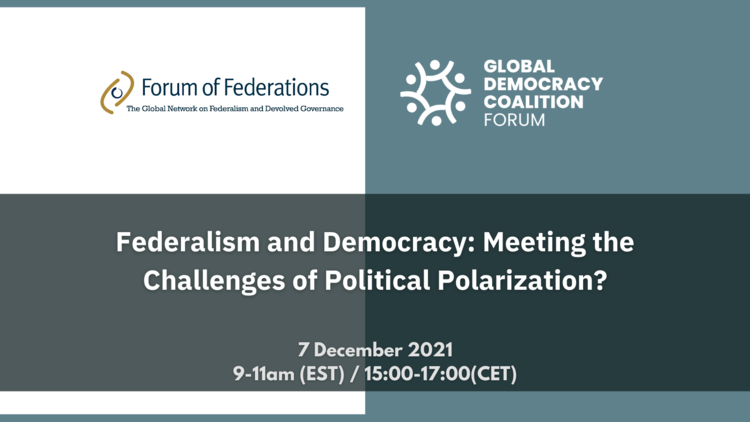The second half of the 20th century saw an expansion of democracy and federalism around the world. Indeed, more and more people have been demanding freedom, human rights and participation in politics. However, democratization has also revealed deep divides in societies, and rising conflicts are threatening democracy. Against this background, federalism has been expected to stabilize government in divided societies and to accommodate claims of national minorities. Democratization has fostered federalization as it has allowed citizens in formerly dominated communities to gain greater autonomy. In turn, federalism has supported democracy by constraining the concentration of government power. Thus, federalism and democracy promise to advance and stabilize each other, and federal democracy seems an ideal political system in a liberal and pluralist society (Burgess 2012).
However, many developments and conditions can cause a crisis or failure of democracy and federalism. Indeed, according to the Economist Intelligence Unit’s Democracy Index (2020), only 24% of the 25 federal countries in the index are full democracies. Some 32% are flawed democracies (including the United States), 16% are hybrid (regimes with regular election fraud), and 28% are authoritarian. Further, a 2018 survey of citizens in 27 countries by the Pew Research Center found a median of 51% not satisfied with the way democracy works in their country.
Key questions arising on this background are:
Are federations prone to be more or less democratic than non-federations?
Is federalism an asset or liability for democracy in federations?
How to construct democracy in countries that have deep national, racial, ethnic, linguistic, and/or religious cleavages and, in turn, how to construct a system of federal democracy that reasonably accommodates deep diversity while at the same time not stoking nationalist secessionism?
This webinar will bring together a panel of experts from the Global North and the Global South who will reflect on these questions. The discussion will be based on a paper by Arthur Benz prepared for the Forum of Federations, entitled “Federal Democracy and the Challenges of Political Polarization”.
AGENDA
Moderator: Rupak Chattopadhyay, President and CEO, Forum of Federations
DISCUSSION PANEL
Arthur Benz, Professor of Political Science, Technical University of Darmstadt, Germany
Rekha Saxena, Professor of Political Science, University of Delhi, India
Nico Steytler, South African Research Chair in Multilevel Government, Law and Development, Dullah Omar Institute of Constitutional Law, Governance and Human Rights, University of the Western Cape, South Africa
Monika Le Roy, Advisor to the Secretary-General, Organization of American States, Washington D.C., United States

